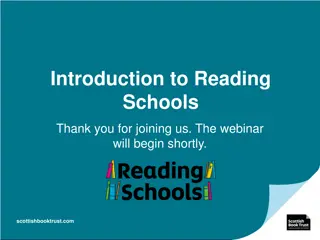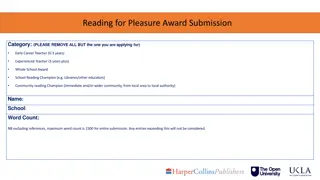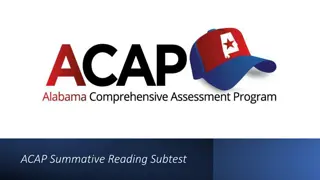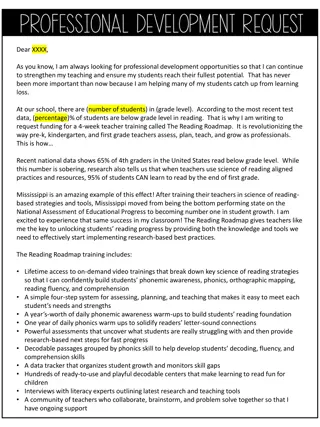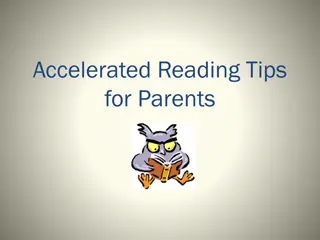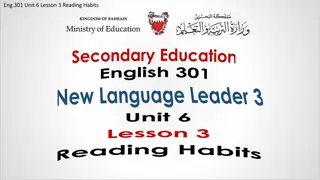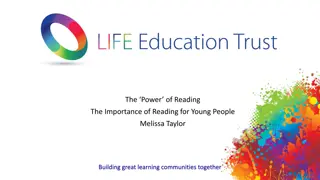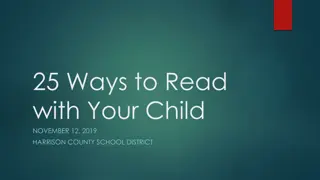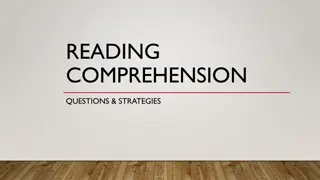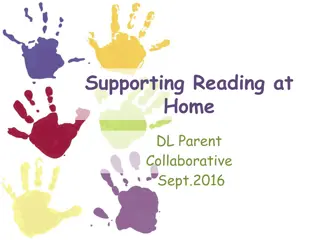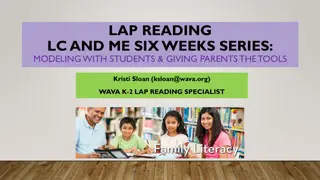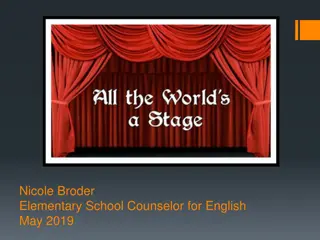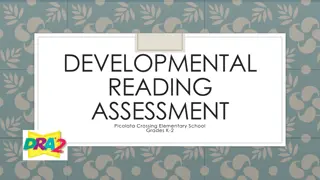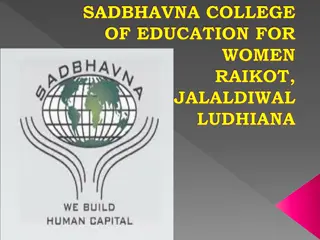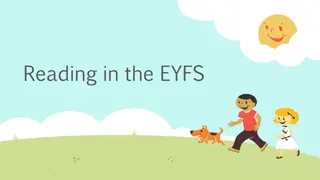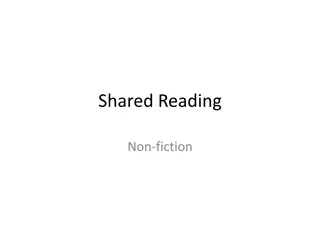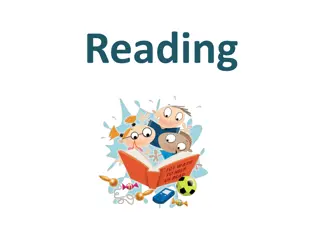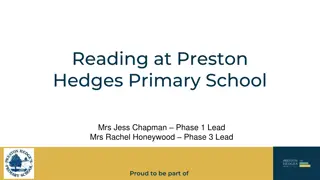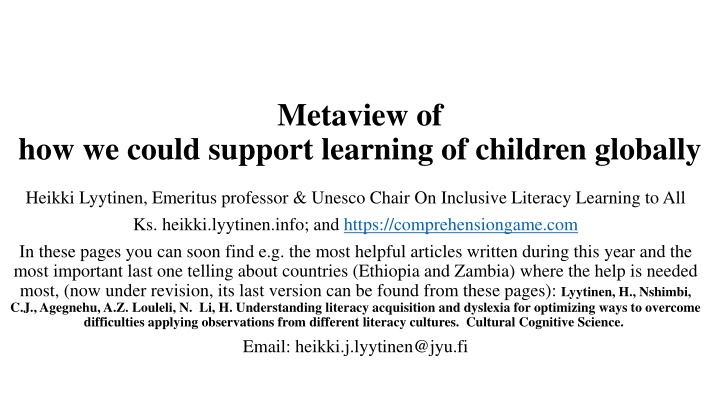
Supporting Global Children's Learning: Insights from Heikki Lyytinen
Explore how to enhance children's learning worldwide through the expertise of Heikki Lyytinen, focusing on literacy acquisition, dyslexia, and effective strategies. Discover the importance of game-based training, internet tools, statistical learning, and dynamic assessment in optimizing learning outcomes and achieving full literacy. Uncover key challenges in academic learning and ways to overcome them for a holistic educational experience.
Download Presentation

Please find below an Image/Link to download the presentation.
The content on the website is provided AS IS for your information and personal use only. It may not be sold, licensed, or shared on other websites without obtaining consent from the author. If you encounter any issues during the download, it is possible that the publisher has removed the file from their server.
You are allowed to download the files provided on this website for personal or commercial use, subject to the condition that they are used lawfully. All files are the property of their respective owners.
The content on the website is provided AS IS for your information and personal use only. It may not be sold, licensed, or shared on other websites without obtaining consent from the author.
E N D
Presentation Transcript
Metaview of how we could support learning of children globally Heikki Lyytinen, Emeritus professor & Unesco Chair On Inclusive Literacy Learning to All Ks. heikki.lyytinen.info; and https://comprehensiongame.com In these pages you can soon find e.g. the most helpful articles written during this year and the most important last one telling about countries (Ethiopia and Zambia) where the help is needed most, (now under revision, its last version can be found from these pages): Lyytinen, H., Nshimbi, C.J., Agegnehu, A.Z. Louleli, N. Li, H. Understanding literacy acquisition and dyslexia for optimizing ways to overcome difficulties applying observations from different literacy cultures. Cultural Cognitive Science. Email: heikki.j.lyytinen@jyu.fi
We know enough about learning - why not to start supporting childrens learning in empirically proven ways! Abstract: We had to learn to concentrate on the most essential, ie. to 1) the goal of reading, 2) supporting learners instead of repeating what we already know, 3) studying the most effective ways to help children reaching the goal of reading, 4) focussing our help to those who need it most and 5) consideration of what is the most important criterion needed for the documentation of the success of our training. This means a total update of our way to run research. 1. all children can learn almost everything which makes them interested in learning, which game-based training can do Documented by my Storyreader game training children before school to reach the goal of reading 2. training tools had to be open to use of children globally now when most children can be helped to use internet Thus all methods mentioned here are working via internet in Android phones or tablets and computers 3. most approprite measure of the results of the games is to observe effects of the training on school achievements (SA) Optimal way to use Ekapeli/GraphoGame (EP/GG) trains accurate reading skill to all without elevating SA 4. most of the learning occurs via statistical learning (associative learning) storing the repeatedly faced consistencies The storyteller game is based on statistical learning which trains skills without intention and awareness 5. bottlenecks of learning can be opened by preventive training because children lose their interest if failing before it EP/GG s efficiency is good if used before the player starts seeing her/himslevel less good than classmates
6. dynamic assessment can be used to observe+support learning+its proceedings most convincly from the beginning It can open the observed specific bottlenecks of learning to read and guarantee that the noted problems are solved 7. learning accurate&fluent (=basic) reading skills is not enough - it has not led the learner to the goal of reading The basic reading skills help in sounding text which in Finnish is not affected by knowing its meaning 8 academic learning needs full literacy=comprehension more difficult to acquire in transparent orthographies One has to comprehend written as well as one is able to comprehend spoken language to learn well in the school 9. to enjoy and learn well without stress in school requires this full literacy (FL) In Finland FL can be learned during 2.gr when (at least all Ekapeli users) have accurate &fluent reading skills. 10. only the story (not word or sentence) level comprehension is enough for learning from schoolbooks FL = that one identifies key content to store it to the working memory for moving it to the permanent memory 11. finding the key contents can be learned: 1) via leisure reading (the naturally until now), or 2) via separate training Because especially boys are no more interested in leisure reading, alternative ways have to be invented 12. the newest difficulties of learning the FL are due to learning from the net which offers readily shortened content If the key content is given without any need to learn to identify it, reaching good results in PISA is difficult
Continues 13. the Finnish strategy to motivate children to read ice-creams and reading diplomas is not enough to motivate boys Boys had to get reading which is interesting enough for making them to want to comprehend what is written there 14. reading comprehension can be shortly defined in an understandable way to any 2.grader to help them to reach FL They should understand the interplay between working and permanent memory+limited capacity of working memory 15. the storyteller is designed to instruct FL in Africa where it had to be-aquired before school without books & teachers This may be the only way especially to rural children in Africa to instruct FL because none other way is available 16. It is needed now in Finland - results of PISA, PIRLS and data from school achievements have shown falling for years These falls have not been attended - the 2022 PISA results at the beginning of December may show a further fall 17. My Tokapeli (TP)/ComprehensionGame is available for free to instruct reading comprehension and also critical reading Background knowledge affects comprehension; thus TP is good for learning lessons ie. accumulation of knowledge 18. children can globally learn FL by benefiting results of learning games and AI which all can be collected from internet Availability of internet, learning games and AI will help all to learn FL to continue learning knowledge collected via AI 19. now ComprehensionGame (CG) is the only existing, empirically validated training tool which can train FL to all in need School marks of illiterate Zambian children were elevated after the use of CG but not after use of GraphoGame only THANK YOU FOR YOUR ATTENTION! Please, go to www.comprehensiongame.com for learning more!

